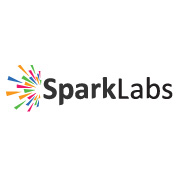SparkLabs, a new startup accelerator, launched today in hopes of developing South Korea’s next wave of entrepreneurs.
Serial entrepreneurs Hanjoo Lee, James Kim and Bernard Moon, who have all known each other since college, co-founded the accelerator. Moon said they are all Korean or Korean American and want to be a part of the changing entrepreneurial landscape in the country.
Moon says they see more young entrepreneurs looking outside South Korea and wanting to be global companies, not just working to be acquired by a regional company. They want to build a network to advise these companies on launching outside of Korea to the U.S., Japan, China and more.
“We’re really focused on helping Korean entrepreneurs grow and develop their business outside of Korea,” he tells me.
SparkLabs opens applications for its inaugural class of 4-8 companies on August 30th. The program will launch at the end of November, with the first class graduating at the end of January and the second class beginning in March.
Moon says they looked at some of the most successful accelerators, like Y Combinator and TechStars, when modeling SparkLabs. Like most of its peer institutions, SparkLabs will provide startups with free office space and mentors, among other benefits. Each company will get 5-6 mentors, who will have a hands-on role in guiding the startup.
Moon says Mark Cuban and Vint Cerf, the accelerator’s high-profile advisors, will provide “high-level advice and big picture guidance,” possibly attending events or speaking sessions with the classes; however, he admits that having them also just helps to lend SparkLabs credibility.
SparkLabs is a member of the Global Accelerator Network, a group of independently owned accelerators around the world, including charter member TechStars. SparkLabs is the Network’s first member in Korea.
Moon says he and his co-founders don’t see themselves in competiton with other Korean accelerators, as they want several in Korea to develop an ecosystem.

